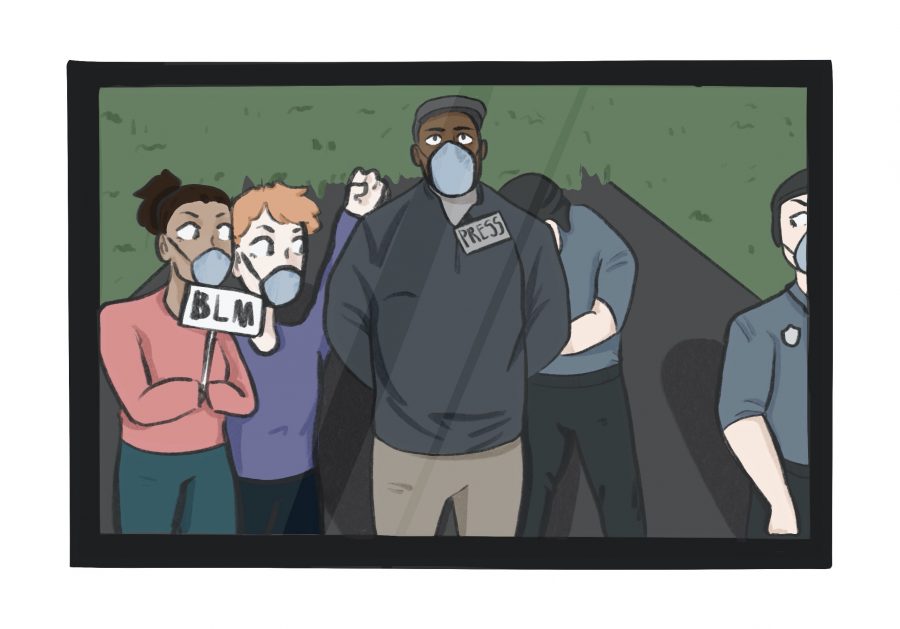Breonna Taylor: a black EMT who was shot fatally after policemen investigating a narcotics case confused her apartment with someone else’s. Ahmaud Arbery: an unarmed black man who was lynched by two white people solely for jogging in their neighborhood. George Floyd: an innocent, handcuffed black man who was choked to death by four police officers despite not resisting arrest.
These individuals represent just a fraction of the long list of anti-black violence victims. Nevertheless, their stories deserve the space to be told and understood, as they are indicative of a larger cultural problem within the United States; the issue of white supremacy represents a deeply-ingrained, ongoing and pervasive plague for the country.
In the face of such grave injustice, the role of the press is complicated. In a world where every piece of information put out by the media is cast as having a spin or political bend to it, journalists are duty-bound to provide objective information. However, objectivity is not always the same as impartiality, which ensures balanced coverage of both parties.
Of course, a news source that promotes opinions rather than facts cannot be trusted to provide accurate information. But when the full range of facts suggests corruption and inequity, providing that information objectively and taking an active stance to criticize instances of racism is a far cry from bias—rather, it is precisely the media’s job.
Floyd’s story, for example, presents clear evidence of extrajudicial violence from authority figures. Thus, treating the opposing viewpoints of Floyd’s and the police force’s supporters equally in this case is nothing more than an implicit authorization of the latter.
Simply put, pure impartiality is neither neutral nor truthful but rather a means of maintaining the inequalities of the status quo. In instances like these, explicit condemnation of racially-biased law enforcement provides opportunities for journalists to promote public welfare, in a way that simultaneously presents the facts and refrains from diluting ethics.
The role of the press in exposing governmental misdeeds has already been accepted in such areas as foreign policy. When the New York Times released the Pentagon Papers to highlight the flaws of the Vietnam War, or the Associated Press reported on torturing practices at Abu Ghraib, they were serving as a necessary check on governmental corruption.
Journalists ought to view police brutality, the broader structures of racism to which police brutality is linked and other civil rights violations in the same way: massive problems worthy of criticism. They should not shy away from using their outlets in a productive way that helps to create awareness and positive change.
The impact of such a proactive attempt at combating discriminatory violence cannot be overstated. Although appropriate reporting likely cannot override centuries-long legacies of inequality, it certainly can add momentum to the movements seeking to do so.
Returning to the example of the Pentagon Papers, the New York Times’ decision to question the motives of the U.S. played an invaluable role in empowering anti-war protests and culminated in the end of the Vietnam War.
In the face of insidious manifestations of race-based violence, journalists occupy a unique position to highlight obvious forms of prejudice, to maintain journalistic integrity and to provide a megaphone for silenced voices that too often go unheard.



























